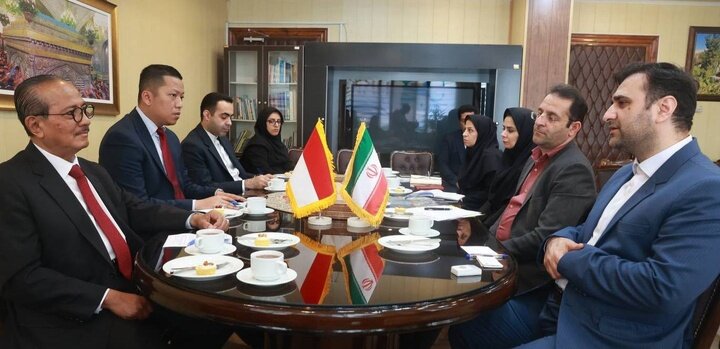Tehran, Jakarta to scale up tourism

TEHRAN – Stemming from cultural and religious ties between Iran and Indonesia, the two nations have taken steps forward in the tourism field front and center in collaboration agenda.
In a notable effort to bolster cultural connections between the two nations, Iran’s deputy tourism minister has met with the Indonesian Ambassador to Tehran to discuss further cooperation.
Ali-Asghar Shalbafian highlighted the importance of deepening tourism collaborations between two countries with particular focus on bilateral private sector activities.
Pointing to the Iranian part of the efforts, featuring a visa-waiver program for Indonesians, Shalbafian emphasized that paving the way for collaboration in the tourism field is a priority for the Iranian Ministry of Cultural Heritage, Tourism, and Handicrafts.
Efforts to establish direct flights, reduce the cost of tour packages, arranging tourism cooperation plans and hosting events showcasing Iran's tourism potential were also discussed.
Additionally, marketing and advertising strategies were followed in conversations, including the use of influencers on social media and understanding the preferences of both parties to promote attractive destinations.
Ronny Prasetyo Yuliantoro, for his part, responded positively, emphasizing the cultural bonds between Tehran and Jakarta.
The ambassador further explained that Iran is considered as an attractive destination for Indonesian tourists.
Prioritizing the issues related to the tourism link between the two countries, the Indonesian envoy mentioned easing tourists’ arrivals and content creation about tourist attractions.
As Iran endeavors to establish itself as a tourist hotspot, these developments mark significant strides in fostering closer ties between the two nations and opening up new avenues for cultural exchange and tourism.
More than six million foreign tourists arrived by air, road, and sea in Iran during the past Iranian calendar year, which came to an end on March 19.
Last year, Iran set the stage for the unilateral abolition of visa requirements for citizens of 32 countries, which took effect on February 4.
The visa-waiver program was approved for India, United Arab Emirates, Bahrain, Saudi Arabia, Qatar, Kuwait, Indonesia, Brunei, Japan, Singapore, Cambodia, Malaysia, Vietnam, Brazil, Peru, Cuba, Mexico, Bolivia, Venezuela, Bosnia and Herzegovina, Serbia, Croatia, Belarus, Lebanon, Uzbekistan, Kyrgyzstan, Tajikistan, Tunisia, Mauritania, Tanzania, Zimbabwe, Mauritius, and Seychelles.
XF
